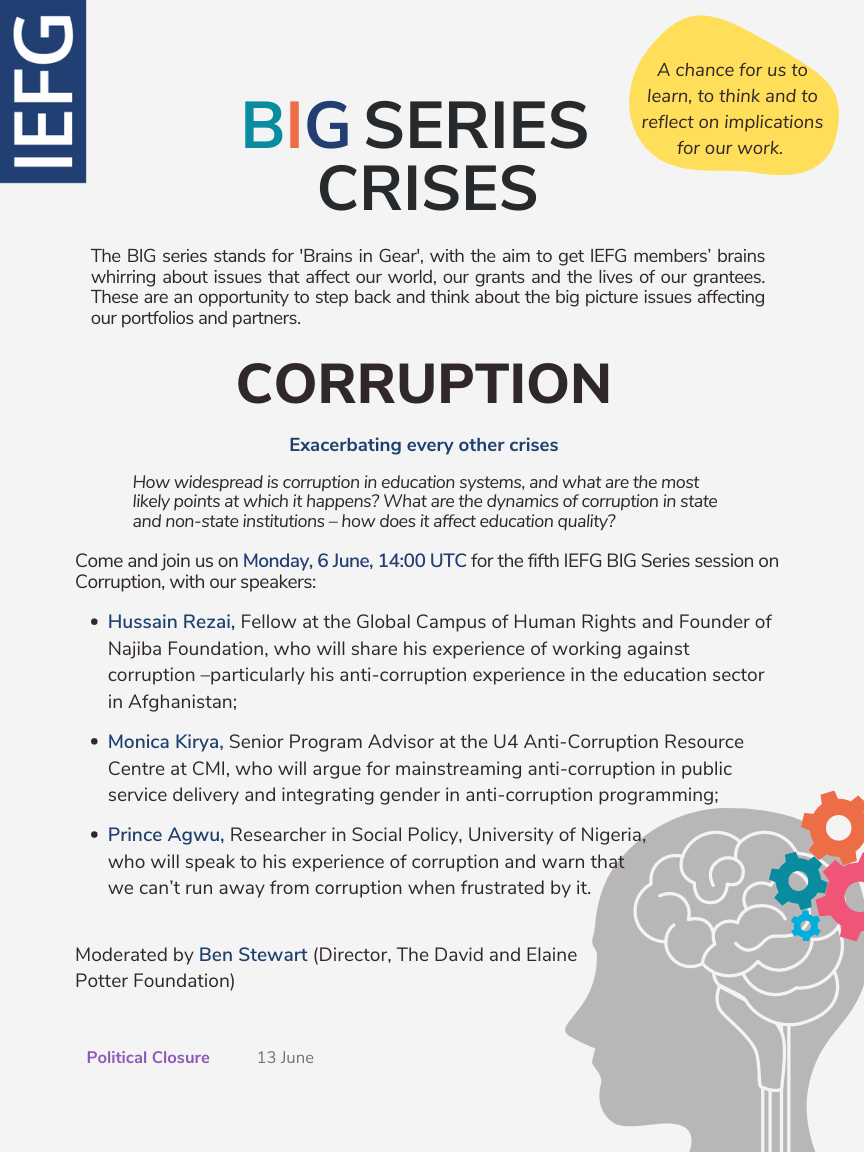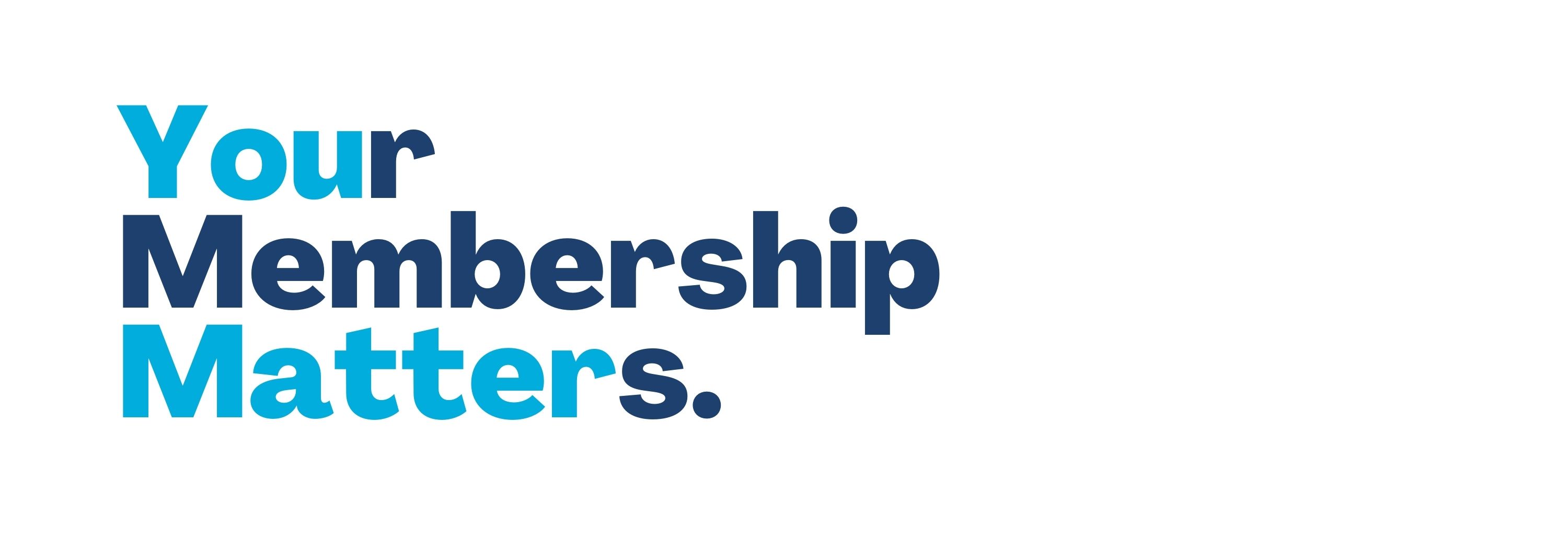|
IEFG BIG SERIES: Crises - Corruption- 6 June 2022  Audio recordingReflections from the Session'We are all complicit.' Resources➡️ U4 Anti-Corruption Resource Centre at CMI: Efforts in Education: The education sector presents a significant opportunity and entry point for long-term anti-corruption work. This page summarises CMI’s U4 Anti-Corruption Resource Centre’s efforts in the education sector – specifically what they and others do to advance research and reduce corruption in education. A 2019 issue brief looked at how to assess education sector corruption and ways to address it, while a more recent publication summarised the need for more robust anti-corruption efforts in conflict transformation agendas.
➡️ Bad philanthropy: The rinsing of toxic money: Published in the summer of 2020, this article shared the incident of Black Lives Matter protestors in Bristol, England, toppling over a statue of Edward Colston, an English merchant who made his money off the slave trade – also known as ‘Bristol’s most famous philanthropist’. It questions what happens when the purpose of philanthropy isn’t just to do good. What happens when the source of funds used for philanthropy is tainted and toxic? Does this cancel out the good deed that is done with those funds?
➡️ Corruption and climate vulnerability – a devastating relationship: We know that many of the crises we have discussed over the last few weeks are interconnected and impact one another. This article emphasises on the negative impact of corruption on climate action, arguing it is a link we can no longer ignore. It also refers to research that shows how corruption has undermined public health systems and democratic institutions, damaging governments’ ability to respond effectively and democratically to public health crises like COVID-19.
|



